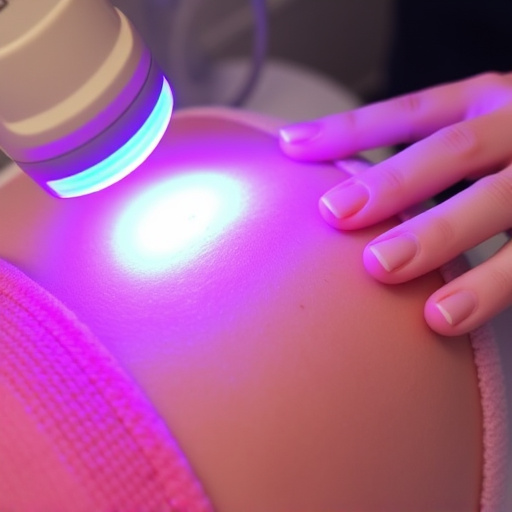Uncovering dietary triggers and understanding environmental factors are crucial steps in dermatitis treatment. Keeping a food diary helps identify culprits like dairy, gluten, eggs, nuts, and additives. Along with medical spa treatments, gentle products, and personalized skincare routines, lifestyle changes including dietary adjustments and laser hair removal can significantly improve skin health and reduce inflammation.
Dermatitis, a complex skin condition, often requires a multifaceted approach for effective treatment. While topical medications play a crucial role, it’s becoming increasingly evident that dietary and environmental adjustments can significantly impact symptoms. This article explores how uncovering specific dietary triggers and understanding environmental factors can lead to successful dermatitis management. By delving into these aspects, individuals can make informed lifestyle changes, achieving clearer skin and improved quality of life.
- Uncovering Dietary Triggers for Dermatitis
- Environmental Factors and Skin Inflammation
- Making Lifestyle Changes for Effective Treatment
Uncovering Dietary Triggers for Dermatitis

Uncovering dietary triggers is a crucial step in managing dermatitis treatment. Many people experience flare-ups or exacerbation of their skin conditions after consuming certain foods. This reaction can be due to food allergies, sensitivities, or even specific nutrients that impact the skin’s health. Identifying these triggers is essential as it allows individuals to make informed dietary adjustments to soothe their skin and promote healing. A detailed food diary, where you log what you eat and any subsequent skin reactions, can help in this process.
By keeping track of your meals and symptoms, you might notice patterns that point towards specific foods or ingredients that aggravate your dermatitis. Common culprits include dairy, gluten, eggs, nuts, and certain additives. Once identified, these triggers can be eliminated from the diet to observe improvements in skin health. This approach often goes hand in hand with other dermatitis treatments like microneedling therapy and facial treatments for a comprehensive care strategy, potentially leading to clearer, brighter skin as part of your overall dermatitis management plan.
Environmental Factors and Skin Inflammation

Environmental factors play a significant role in dermatitis treatment. Exposure to certain substances like irritants, allergens, and even extreme weather conditions can trigger or exacerbate skin inflammation. For instance, chemical irritants found in cleaning products or cosmetics might cause contact dermatitis, while allergens such as pollen or pet dander can lead to atopic dermatitis. Additionally, environmental factors like dry air, pollution, and UV radiation contribute to skin dryness and damage, making it more susceptible to inflammation.
Understanding these environmental triggers is crucial for effective dermatitis treatment. Making adjustments in your daily routine, such as using gentle, non-irritating products and avoiding known allergens, can help manage symptoms. Visiting a medical spa offering professional skincare services can also provide specialized treatments tailored to address specific environmental factors affecting your skin. These strategies, combined with dietary changes, offer a comprehensive approach to dermatitis treatment, focusing on both internal and external elements for improved skin health and reduced inflammation.
Making Lifestyle Changes for Effective Treatment

For effective dermatitis treatment, making lifestyle changes is often key. This involves a two-pronged approach: dietary adjustments and environmental modifications. Dietary changes can significantly impact skin health, as certain foods may trigger or exacerbate dermatitis symptoms. Working with a dietician to identify and eliminate potential allergens or irritants from your diet can be immensely beneficial. Additionally, incorporating nutrient-rich foods that promote skin healing and overall well-being is crucial.
Environmental adjustments play an equally vital role in dermatitis treatment. Minimizing exposure to known triggers such as harsh chemicals, certain fabrics, and extreme weather conditions can help prevent flare-ups. Implementing personalized skincare routines that suit your unique needs, perhaps with the guidance of a dermatologist, can also contribute to improved skin health. Moreover, considering procedures like laser hair removal for areas prone to irritation or using specialized products for skin tightening can be part of an integrated approach to managing dermatitis effectively.
In addressing dermatitis treatment, a holistic approach encompassing dietary adjustments and environmental modifications is key. By understanding individual triggers through targeted dietary exploration and recognizing the impact of environmental factors, individuals can effectively manage their skin inflammation. Adopting lifestyle changes that promote a balanced diet and minimize exposure to irritants offers a sustainable path towards clearer, healthier skin.














